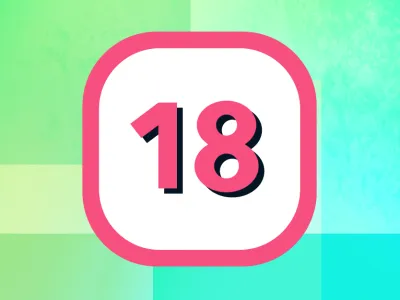
Preparing For Your First Job: My Advice
Include this article in your Skills Builder Journal. It could help you develop...![]()



You might be taking your first steps into the world of work right now, and might also feel a bit intimidated. That’s totally normal! Luckily for you, Alice is here with some useful tips for getting started. Here’s what she has to say...
So you're looking to get your first job. Great! Get ready for a process that will challenge you. This is a crucial step in becoming an adult, as you've probably been told. The following are some short tips and tricks on navigating your first job.
BE YOURSELF BUT BE SMART
Congrats! After what feels like years of trawling through job sites, you've got an interview! Now here comes the hard part: selling yourself. For many people, this is the hardest part of getting their first job. The advice I have here is to be confident. Easier said than done, sure. But no one else is going to vouch for you, like you are! Being smart and persistent is your best bet here. Research the companies you're applying for, write out the candidate profile and attach your experiences to the required skills. It may be tedious, but it's better to do this now rather than scrambling to do it off the top of your head during the interview. Here’s an example of what I do:
Time Management: Work on an undergraduate degree and writing a novel
Keeping your points and examples short is the best way to memorise and recall in stressful situations - like interviews. Of course, in the actual interview, you’ll need to expand on your example, but for now, make sure you have something short and sweet that you can remember.

BE PERSISTENT AND BE CURIOUS
This isn't going to be easy. No matter how many jobs you don't get or don't hear back from, keep trying. When one door closes, another opens. There's no manual for adulthood and if working has taught me anything, it's that you have to keep picking yourself up and keep trying. Show how much you want these potential jobs by proactively asking questions at the interview. This shows your interest and what sort of things you value. In the first interview, it’s best to steer clear of money or benefits of the job, as this could make you look like you're solely driven by that. Instead, ask about the positive aspects of the job, the company’s working culture, or about how their ethics can be seen in the daily working routine. These questions will help reinforce your values and help connect to the people interviewing you.

KNOW YOUR WORTH
This is one of the best pieces of advice I can give. The working world is difficult: it's hard to get your foot in the door at the best of times, and sometimes it might feel like any job you manage to get will be something you have to keep - for the money, the experience and the independence. I get it. For three years I worked in a store that wouldn't post rotas regularly, denied sick days and was full of entitled, rude, customers. I often would walk away in tears. Crying in the stockroom is not something that should become a regular feature of your life. Know your worth and take steps to finding the place that works for you. While we all need money to survive, your number one priority should be yourself, and feeling valued in your workplace.

HAVE A LITTLE PATIENCE
Yes, I'm referencing the Take That song. No, I'm not someone in their 30s or above. I'll be real with you, customers sometimes suck. If you find yourself in a customer facing role, you might be surprised at some people’s lack of patience. In the face of these customers, take a deep breath and do not stoop to their level. Managing people in all their complexities is incredibly difficult and important; taking the time to breathe and rationalise will help you deal with customers instead of reacting emotionally and potentially losing your job. And hey - you can always use the experience of dealing with difficult customers and how you overcame it, in an interview for a new job!

ALWAYS PHOTOGRAPH YOUR ROTAS
Miscommunication in regards to rotas happens sometimes. I've even been called by my manager asking why I haven’t turned up for my shift...when I was on holiday in another country! Sometimes it'll be changed without your knowing. In case of either of these scenarios, take a picture of your rota to reference and send to your manager if any problem arises. In general, it is a good port of call to always double check your rota every time you are at work. Plus, taking photographs of your rota will make it easier for you to have a record of your hours that you can readily reference too.

So, in conclusion, your first job will test you. Make no doubt about it. But it will teach you skills that you don't necessarily learn in school. Skills that will round you out and make you a better person, ready to take on the world. Rest assured, you're taking important steps and for that, I applaud you and wish you the best of luck!




